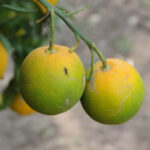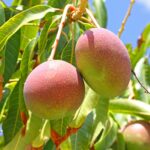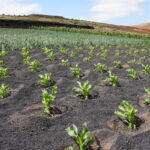Fedefruta President Víctor Catán: “We are going to have a very good year”

President of the National Federation of Fruit Producers of Chile (Fedefruta) Víctor Catán, has shared with FreshFruitPortal.com optimistic projections for the fruit industry in the coming year, highlighting both opportunities and challenges for producers.
Catán began by emphasizing the positive outlook for production, citing favorable winter conditions characterized by ample rainfall, snow accumulation, and sufficient cold hours.
“We are going to have a very good year in terms of production, especially since spring was free from frost damage,” he noted.
From a commercial perspective, Catán expressed confidence, pointing to issues in the northern hemisphere that could benefit Chilean fruit. He explained that heat waves in the United States led to an early closure of the grape season and limited storage options for producers.
Additionally, heavy rains in the Valencia region of Europe resulted in losses in citrus production, creating further opportunities for Chilean exports.
Catán also addressed the impacts of weather on neighboring countries. In Peru, drought conditions have caused early fruit removals, while rainfall in Brazil has affected table grape production in Petrolina.
“All these aspects are generating opportunities for Chile,” he said.
Recommendations for producers
Catán provided several recommendations for fruit producers to maximize their profitability:
He urged producers to only pack fruit in optimal condition, warning that packing subpar fruit can lead to market congestion and decreased prices for high-quality products.
Producers should collaborate closely with exporters and sales representatives, Catán added, to identify marketing opportunities for different fruit qualities.
He highlighted that markets in South America, such as Brazil and Central America, are becoming increasingly attractive and encouraged producers to actively engage in the commercialization of their fruit.
Challenges ahead
When discussing challenges, Catán pointed to structural issues that need addressing.
“As a country, we continue to see the necessity for water reservoirs, reuse, desalination, and navigating permitting processes, which have become complex and expensive,” he stated.
Regarding phytosanitary concerns, he expressed alarm over the lack of strict border controls, noting that the presence of pests such as the fruit fly poses significant costs.
“We are prone to facing another quarantine pest if we do not enforce rigid border controls,” he cautioned. He called for a more efficient state response to these issues, indicating that Chile is lagging in this regard.
In addressing labor needs, Catán underscored the importance of documenting foreign workers, advocating for regulated immigration as a means to support the country's agricultural labor force, particularly from Bolivia. He emphasized that Bolivian seasonal workers play a vital role in the fruit industry.
Security is also a pressing concern for farmers and workers, according to Catán. While he acknowledged the establishment of working groups, he pointed out that progress has been slow and insufficient.
Discussion on infrastructure revealed Catán’s concerns about Chile’s ports. He mentioned the recent inauguration of the Port of Chancay in Peru as a competitive challenge and stressed the need for expansion permits at the Port of Valparaíso and Port of San Antonio.
Looking forward, he urged that the Port of Coronel be equipped to handle increased fruit shipments, particularly as production grows in the southern Biobío and La Araucanía regions.
Catán emphasized Fedefruta's collaboration with the Ministry of Agriculture to prioritize fruit exports over other cargo types, ensuring that the needs of the fruit industry are effectively met.
Catán concluded by underscoring the role of Chilean fruit in promoting health worldwide, noting, “We do not just sell fruit; we sell health.” He expressed pride in the exceptional quality of Chilean fruit and its adherence to the highest standards.
He reminded producers of the importance of understanding market needs, advising against following trends without comprehending actual demand. Emerging markets in India, the Arab world, and growing consumption in Latin America present significant opportunities. He projected that by 2025, Chile could see exports exceeding $7 billion and suggested that sales figures and fruit cultivation areas could double if structural issues are resolved.














































